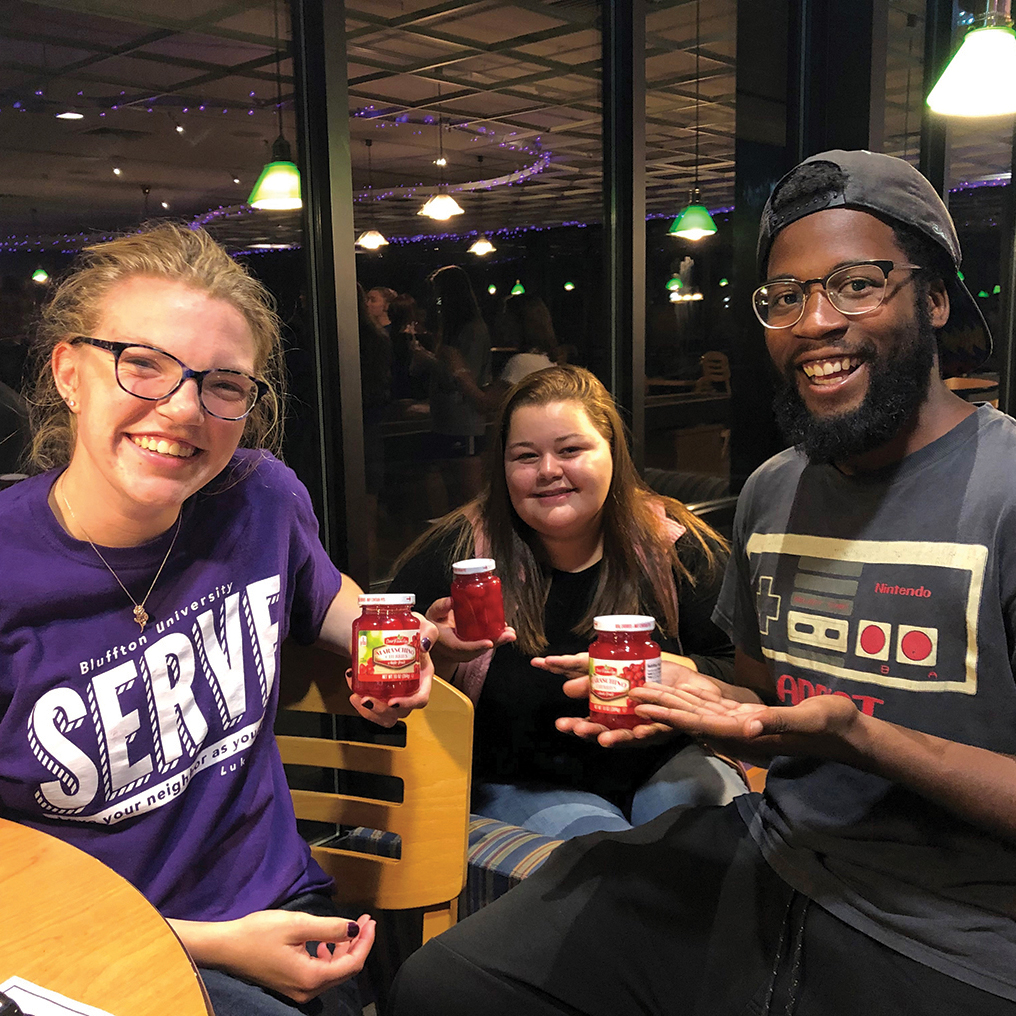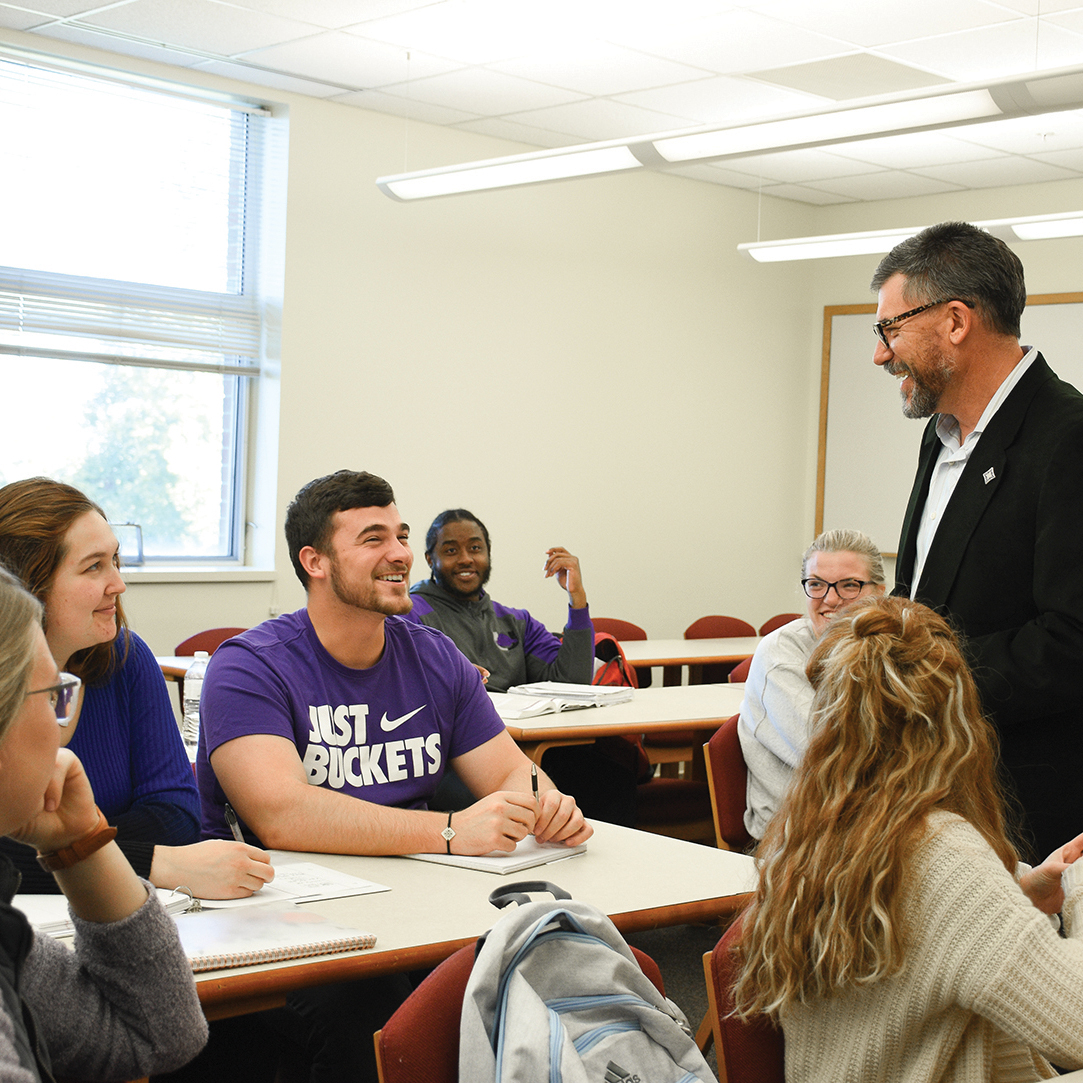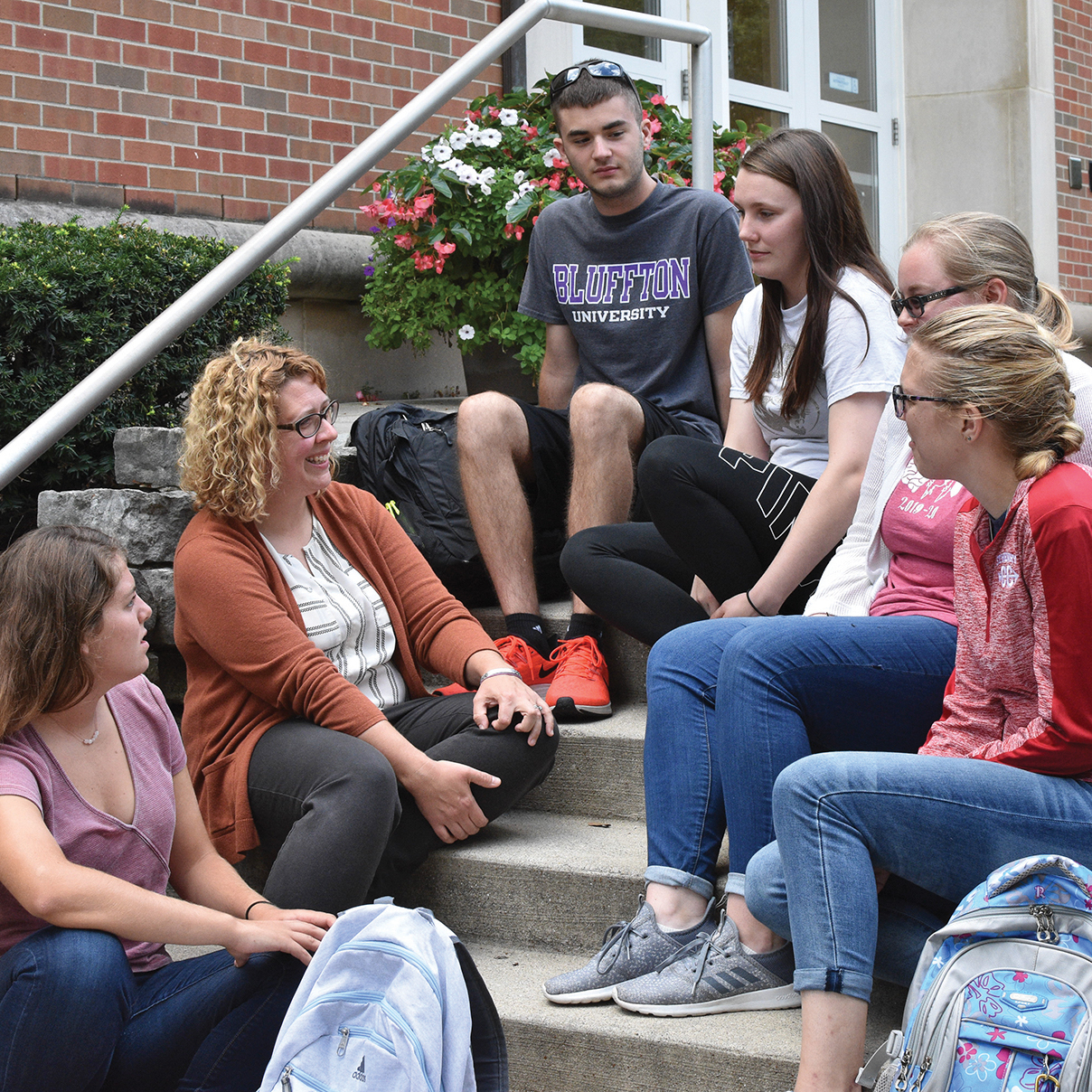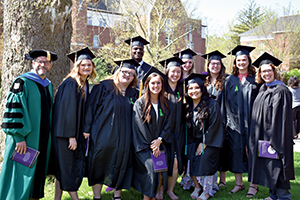
Members of the social work club at an ice cream social.

Dr. Walt Paquin and students in class.

Heidi Mercer meets with officers of the social work club.
The future of social work

While social work has a long and positive history at Bluffton, the general perception of the field is often mired in negative rhetoric. Current social work faculty Dr. Walt Paquin and Heidi Mercer shared some thoughts on the profession, changes over the years and the continued need for social workers.
The profession of social work
When asked if social workers solve problems, Walt Paquin and Heidi Mercer, shared
their answer in adamant unison. “No!”
“We provide resources,” explained Paquin, head of the social work department at Bluffton since 2017 and professor in the program since 2011.
“We teach people to fish, but we won’t fish for them,” added Mercer, assistant professor of social work since 2017 and director of field education.
So, what do social workers do? The National Association of Social Workers (NASW) begins
the preamble to its code of ethics with these words: “The primary mission of the social
work profession is to enhance human wellbeing and help meet the basic human needs
of all people, with particular attention to the needs and empowerment of people who
are vulnerable, oppressed and living in poverty.”
“We work with every facet of people’s lives. If your kids are in school, there’s probably a social worker there working with bullying prevention and helping kids get free and reduced lunch,” explained Paquin. “If you are adopting, a child social worker will be involved. If you have a family member in a nursing home, social workers are there. If you have a child born with a disability, a social worker will work with you. If you are in prison or on parole, your parole officer might be a social worker.”
“You can also be an advocate for the people the crime was committed against,” added Mercer. “When a loved one passes away, a social worker is often at the hospital alongside the doctor to support you and provide resources. It is likely that we will all meet with a social worker at some point in our lives.”
Changes over the years
When people envision a social worker out in the field, they are likely to conjure
images of Child Protective Services employees taking children away. That’s a myth
Mercer said social workers are working hard to dispel.
“As social workers, we must be clear and transparent in every interaction we have. At the end of the day, it’s the client’s choice. Our goal is to have sessions that will help clients restore their dignity and worth, but if clients refuse to do the work, they can lose their children or go to jail,” explained Mercer. “We’re the investigators of child abuse and neglect. In most states, it’s actually a police officer who physically removes a child and a judge decides when that happens.”
While children’s services continues to be, and will always be, a major part of the field of social work, Paquin and Mercer have seen a dramatic increase in two other areas over the past few years.
“We’ve moved a lot from thinking about children and families as our focus on practice to a much broader field,” said Paquin. “Now, the place we see social workers needed the most is elder care. More people are retiring and living longer, and you even have people in their 60s and 70s caring for their aging parents.”
Mercer added, “More than half of our graduates from last year are working in community mental health agencies as their first job. That is definitely a growing need, as well.”
While bachelor’s-level social workers (LSW), cannot diagnosemental illnesses, master’s-level social workers (MSW) can. Both work together to ensure clients receive proper care.
“Before it was psychologists, psychiatrists and counselors who worked with a diagnosis. Now, social workers are being utilized more clinically. It’s really made us consider how we prepare our students for the field,” Mercer explained.
One unique aspect of the program, which benefits this shift in the profession, is Bluffton’s social work major is closely aligned with psychology and criminal justice majors. As a whole, the social sciences and social work department is focused on helping students achieve their individual career goals.
While changes to nearly every career are coming at a rapid pace, according to Mercer, there is one part of social work that will never change, “the need for us to exist.”
Always a need
While technology is changing the landscape of social work, Paquin argues there is
“no substitute for a person. The kind of work we do can never be done by computers.
We may provide websites with links to resources, but to truly help clients navigate
their situations and to advocate for clients, you will always need people.”
According to the Bureau of Labor Statistics, the field is in demand. The job outlook for social work is growing at a pace that is “much faster than average.”
That’s good news for recent graduates, but before they even decide on a major, many students are discouraged from entering the field based on another stereotype— you’re never going to make any money.
“We’re not paid great,” said Mercer, “but people don’t go into this field for the money.”
While incomes vary, just like in any career field, Paquin likens the pay, with a Bureau of Labor Statistics median income of $49,470, to another common Bluffton profession.
“It’s comparable to what a teacher makes. If you want to have a good life, doing something that is good for the world, social work is an appealing choice.”
Since Bluffton’s program is nationally accredited, students can utilize their skills, not just in Ohio, but across the country. Many graduates are serving their communities and the world as social workers, but others, who graduated as social work majors, are using those same skills in a variety of ways—as small business owners, teachers or human resources professionals.
Paquin explained, “The problem-solving skills and critical—thinking skills required to be a good social worker are transferable to any profession.”